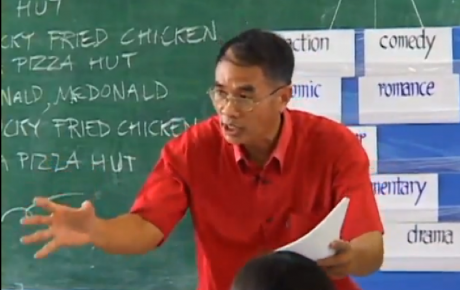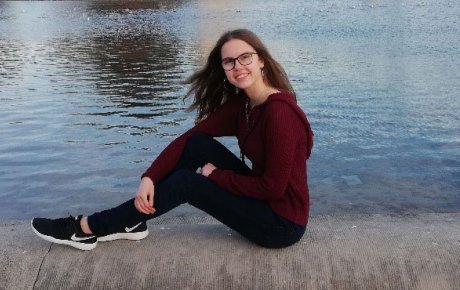International Writing Program - Video
I remember an Irish playwright saying to me once - we were at a picnic out in the country - and he looked at me and he said, "You know, I know this scene. I've seen it so many times in American movies. And it is familiar, but it is so different."
You can visualize it from a book, you can see it on a movie or a TV series, but when you're there and you can smell something a little different when the corn is ripening in Iowa in the summer or when you can catch a whiff of the Quaker Oats factory from Cedar Rapids, not so great.
But it's part of that life. When you get the textures of a place, you begin to get the details that writers depend on.
My name is Christopher Merrill. I direct the International Writing Program at the University of Iowa, which since 1967 has been bringing the writers of the world to the university for a unique residency.
We look for early- to mid-career writers, but what we're really thinking about is where their minds are. The openness to experiences is what we're looking for. And what we find, year after year, is that there is much more common ground among writers than what we even imagined.
They come to Iowa to write, to translate their works, to do research, to interact with other writers. We call the program the United Nations of writers.
I remember meeting in Jerusalem a wonderful Israeli poet, Rami Smolok, who said to me the great thing about being in the IWP was, coming from a small country like I do, I would never have the chance to meet writers from so many place as I met in Iowa City. So the world just became bigger.
Iowa City, as you know, was just named a UNESCO City of Literature, the third in the world after Edinburgh and Melbourne. Iowa City is the one place in America where you can say that you're a poet and nobody will laugh. And so it's a place where the word is honored.
We have a great library, we have a wonderful reading series at the book store. Our feeling is, if it will help the writer get their work done, help them in any possible way. So that means anecdotes, that means stories, that means contacts with different kinds of people, different kinds of audiences.
IWP, as I said, the chief priority is writing, but we also take them on hikes in the area, we take them to farms, we take them to a harvest dinner year after year, we take them to a rodeo. And as you can imagine to have 20 or 30 writers from abroad at a rodeo in Fort Mason, Iowa, I think that's kind of a cultural exchange on both sides.
I think that, in many ways, the writers go back, they write books about Iowa, about the IWP, about America, and I think at the end of the day, if you add all those writings up, newspaper columns and magazine articles and interviews that they do when they come back and the general good will that they tend to feel toward the United States after the fact,
that it begins to present a different picture of the United States, a picture that is more nuanced than it might have been.



